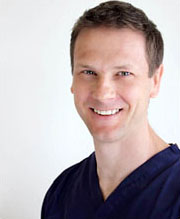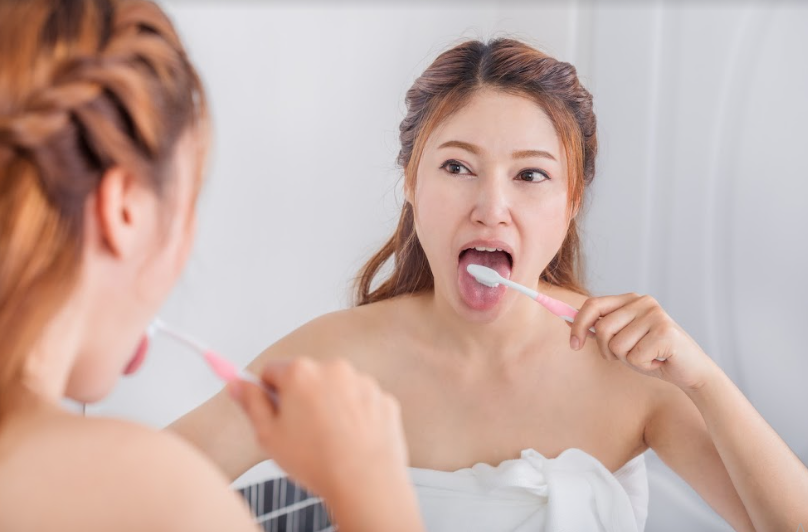Your teeth can last a lifetime if you look after them. By brushing, flossing and practicing good dental hygiene, you can prevent bacteria from building up and attacking tooth enamel which causes cavities.
Most people know you should brush your teeth twice a day and floss too, but not everyone does this, and some people need to brush up on their brushing technique.
Why Brushing and Flossing are Important
There are over 300 types of bacteria in your mouth, some good and some bad. When you eat, bacteria feeds on the sugar and food debris that gets left behind.
If you don’t brush and floss regularly, this bacteria continues to feed and build up. You might notice a bad smell or a bad taste in your mouth when this happens.
Worst still, the bacteria can develop and form plaque, a sticky film on the teeth that attacks and demineralises tooth enamel. Once this happens, cavities may develop and if allowed to continue, the next layer of the tooth to be attacked is called dentin.
Once this occurs, you might start experiencing tooth sensitivity when you eat hot or cold foods. Finally, if the situation is left untreated, the inside of the tooth, known as the pulp, can become infected and cause a tooth abscess. This is accompanied by pain and swelling.
Of course, just missing one or two tooth-brushings will not result in such a severe outcome, but it is important to not let your brushing routine lapse for too long.
Are You at Higher Risk for Complications?
Some people may need to be extra vigilant about their dental hygiene. If gum disease runs in your family, it’s good to mention this to your dentist as you can have a higher risk of gum disease, too.
Similarly, people who have autoimmune diseases such as diabetes have a higher risk of gum disease.
Gum disease is a major cause of adult tooth loss and can be reversed if caught early. For people with a higher risk of gum disease, it’s even more important to practice good dental hygiene to prevent plaque build-up.
Developing a Proper Routine and Good Techniques
Good dental hygiene means brushing your teeth twice a day — and flossing once a day. You need to do this for at least two minutes. However, there are some key things that you should be aware of in order to improve your brushing and flossing technique.
Firstly, make sure that you have the right tools for the job:
- Soft-bristled toothbrush.
- Smaller toothbrush head is easier to get into gaps.
- Electric toothbrush is easier for people who find holding or moving a toothbrush difficult.
- Electric toothbrush with a small head provides the best overall brushing and cleaning.
- Remember to let your toothbrush air-dry after use so that it doesn’t get mouldy.
- Replace your toothbrush every 3 or 4 months or even sooner if the bristles look frayed.
- If you are unsure what type of toothpaste to use, ask your dentist which type would suit your particular dental needs.
Next, make sure that you brush all surfaces of your teeth gently and carefully. Don’t be tempted to brush aggressively as you can damage gum tissues and your teeth if you do this. Follow this routine to ensure that your brushing reaches everywhere it’s needed:
- Start by brushing all the outer surfaces slowly and individually.
- Next, use the brush at a 45-degree angle to gently remove food and debris on the gumline.
- Follow this by cleaning the inside (backs) of each tooth.
- Then use short, back and forward brush strokes to clean all the chewing surfaces.
- Finally, don’t forget to brush your tongue so your breath smells fresh too.
Now that you know what order you should clean your teeth, try to get into a great routine and know when to brush your teeth:
- You can brush before or after eating — but if you choose to brush after, wait at least thirty minutes as some food acids can soften tooth enamel temporarily.
- Consider taking a travel toothbrush to work so you can brush after lunch, too.
- You can also chew sugarless gum to encourage saliva which helps remove food acid.
Developing good habits and practicing good dental hygiene means that you can have a healthy smile that lasts a lifetime.
Better still, you can avoid costly dental treatments by avoiding cavities, infections and worse still, tooth loss.
However, even if you brush regularly and have a great technique, you still need to schedule regular check-ups so your dentist can make sure that your dental hygiene routine is working.
For more information and full articles, please follow the links below:
https://www.colgate.com/en-us/oral-health/brushing-and-flossing/this-is-what-happens-when-you-dont-brush-your-teeth Matthew Houlton BDS(Sheffield) MFGDP(UK)
Matthew Houlton BDS(Sheffield) MFGDP(UK)I’m Matthew Houlton, principal dentist and practice owner of Manor House Dental Practice.
Qualified from Sheffield dental hospital in 1993.
Post graduate training with Paul Tipton (Specialist Prosthodontist) from 2005-2007.
Diploma for Membership of the Faculty of General Dental Practice (UK) 2007.
Special interest in Orthodontics.
Yorkshire Deanary Fixed Appliance Training Scheme 2002-2004.
I have worked at York Hospital’s orthodontic department one session a week since 2009.
Member of the British Society of Occlusal Studies (the study of temporomandibular disorder).
I have two children, who keep me busy when I am not at the practice. I take a keen interest in and teach Aikido, a martial art, to keep a healthy mind and body.

